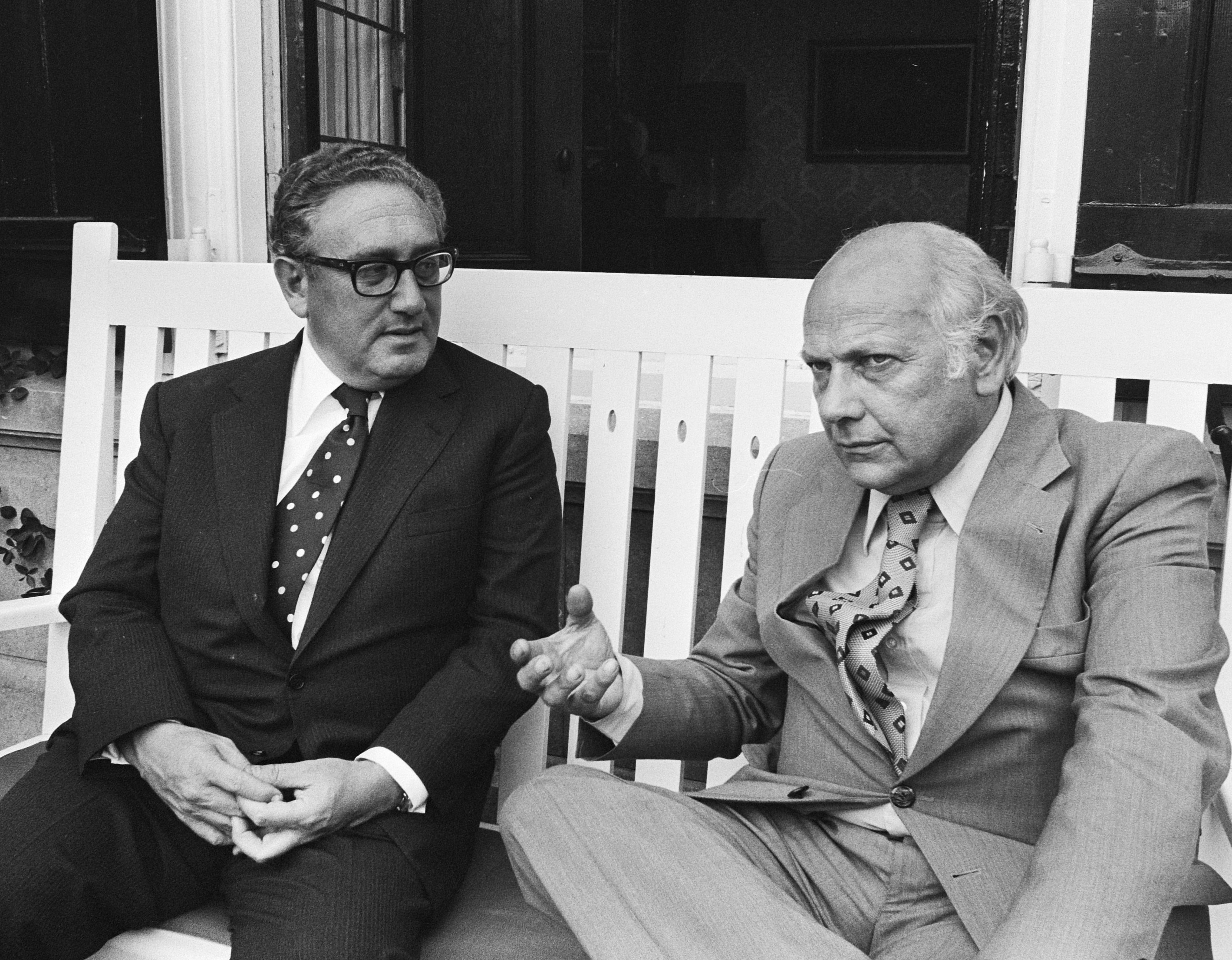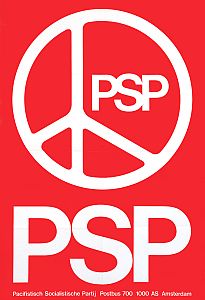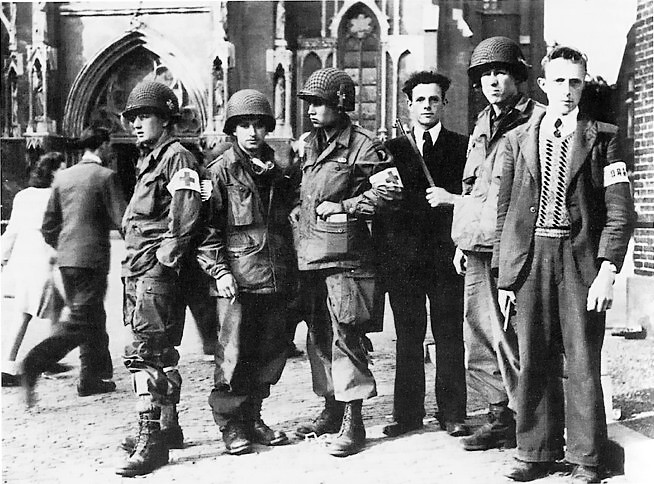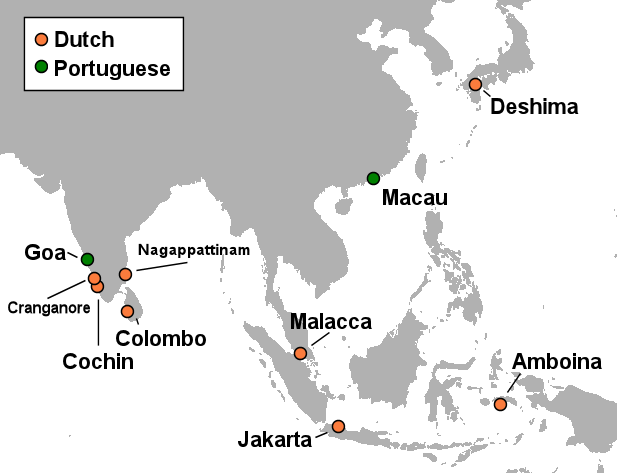|
Socialism In The Netherlands
This article gives an overview of socialism in the Netherlands, including communism and social democracy. It is limited to communist, socialist, social democratic, and democratic socialist parties with substantial support, mainly proved by having had a representation in parliament. Overview Socialism came relatively late to the Netherlands, because of its slow industrialization. In the 1860s a socialist movement began to develop. Although the socialists were aided by the foundation of the First International and of the first Dutch trade unions, united in the Algemeen Nederlands Werklieden Vereniging, a socialist party was not founded until 1881, when the Social Democratic League was founded. The slow industrialization was reflected in the support base of the first socialist parties. It wasn't the urban proletariat which supported them most, instead it were agricultural workers, who were the first to support the League. Before the First World War, the socialist movement saw two ma ... [...More Info...] [...Related Items...] OR: [Wikipedia] [Google] [Baidu] |
Netherlands
, Terminology of the Low Countries, informally Holland, is a country in Northwestern Europe, with Caribbean Netherlands, overseas territories in the Caribbean. It is the largest of the four constituent countries of the Kingdom of the Netherlands. The Netherlands consists of Provinces of the Netherlands, twelve provinces; it borders Germany to the east and Belgium to the south, with a North Sea coastline to the north and west. It shares Maritime boundary, maritime borders with the United Kingdom, Germany, and Belgium. The official language is Dutch language, Dutch, with West Frisian language, West Frisian as a secondary official language in the province of Friesland. Dutch, English_language, English, and Papiamento are official in the Caribbean Netherlands, Caribbean territories. The people who are from the Netherlands is often referred to as Dutch people, Dutch Ethnicity, Ethnicity group, not to be confused by the language. ''Netherlands'' literally means "lower countries" i ... [...More Info...] [...Related Items...] OR: [Wikipedia] [Google] [Baidu] |
Doorbraak
The ''Breakthrough'' () was a short-lived political movement in the Netherlands after World War II, with the stated goal of renewing the politics of the Netherlands by coalescing progressive liberals, Christian democrats and social democrats in a single progressive political party. In the process, the movement sought to 'break through' the pillarisation in Dutch politics. This led to the creation of the modern day Labour Party. The breakthrough idea originated during World War II in Kamp Sint-Michielsgestel, where prominent members of the Dutch elite were interned and discussed political and social questions. Many sought to break with the parochialism of pre-War politics, which was characterised by pillarisation and rigid voting behaviour largely determined by religious affiliation or socio-economic position, reinforced by the notion of antithesis. The political order that would follow the Netherlands' liberation would need a new foundation, one in which religious and socio-econo ... [...More Info...] [...Related Items...] OR: [Wikipedia] [Google] [Baidu] |
Joop Den Uyl
Johannes Marten den Uijl (9 August 1919 – 24 December 1987), better known as Joop den Uyl (), was a Dutch politician and economist who served as Prime Minister of the Netherlands from 1973 to 1977. He was a member of the Labour Party (PvdA). Den Uyl studied Economics at the University of Amsterdam obtaining a Master of Economics degree and worked as a civil servant at the Ministry of Economic Affairs from February 1942 until May 1945 and as a journalist and editor for ''Het Parool'' and '' Vrij Nederland'' from May 1945 until January 1949. Den Uyl served as director of the Wiardi Beckman Foundation from January 1949 until June 1963. Den Uyl became a member of the House of Representatives shortly after the number of seats was raised from 100 to 150 seats following the election of 1956 serving from 6 November 1956 until 5 June 1963 as a frontbencher and spokesperson for economics. Den Uyl was appointed as Minister of Economic Affairs in the Cals cabinet, taking office o ... [...More Info...] [...Related Items...] OR: [Wikipedia] [Google] [Baidu] |
1972 Dutch General Election
Year 197 ( CXCVII) was a common year starting on Saturday of the Julian calendar. At the time, it was known as the Year of the Consulship of Magius and Rufinus (or, less frequently, year 950 ''Ab urbe condita''). The denomination 197 for this year has been used since the early medieval period, when the Anno Domini calendar era became the prevalent method in Europe for naming years. Events By place Roman Empire * February 19 – Battle of Lugdunum: Emperor Septimius Severus defeats the self-proclaimed emperor Clodius Albinus at Lugdunum (modern Lyon). Albinus commits suicide; legionaries sack the town. * Septimius Severus returns to Rome and has about 30 of Albinus's supporters in the Senate executed. After his victory he declares himself the adopted son of the late Marcus Aurelius. * Septimius Severus forms new naval units, manning all the triremes in Italy with heavily armed troops for war in the East. His soldiers embark on an artificial canal between th ... [...More Info...] [...Related Items...] OR: [Wikipedia] [Google] [Baidu] |
1971 Dutch General Election
General elections were held in the Netherlands on 28 April 1971. The Labour Party (PvdA) emerged as the largest party, winning 39 of the 150 seats in the House of Representatives. The elections were the first without compulsory voting, causing a sharp fall in voter turnout, down to 79% from 95% in the 1967 elections.Nohlen & Stöver, p1397 Barend Biesheuvel of the Anti-Revolutionary Party (ARP) became prime minister, leading the first Biesheuvel cabinet. His cabinet contained a broad coalition of parties, with ministers from ARP, Christian Historical Union (both Protestant), the Catholic People's Party, the conservative-liberal People's Party for Freedom and Democracy and moderate socialist Democratic Socialists '70 (DS'70), which had just split off from the PvdA. However, Biesheuvel's government was short-lived; following a decision to cut government spending, DS'70 withdrew from the government, causing it to lose its majority and fresh elections to be held after just a ... [...More Info...] [...Related Items...] OR: [Wikipedia] [Google] [Baidu] |
DS'70
The Democratic Socialists '70 (, DS'70) was a social democratic political party in the Netherlands. History DS'70 was founded on 4 April 1970 as the result of a split from the Labour Party (PvdA). In June 1970, Frans Goedhart and Wybrand Schuitemaker, two members of the House of Representatives, left the PvdA and became members of DS'70 because of the anti-American position the PvdA had taken in the Vietnam War. They had previously been frustrated by its cooperation with other left-wing parties such as the Pacifist Socialist Party and its left-wing fiscal policy. In its declaration of principles (''Beginselverklaring''), DS'70 argued that whilst the People's Party for Freedom and Democracy (VVD) lacked the comprehension of the necessity of social and economic reforms, the PvdA had acquired "anarchist" and unrealistic pacifist aspirations. In the 1971 general election, the party won eight seats in parliament. After the elections, the party cooperated in the first Biesheuvel cab ... [...More Info...] [...Related Items...] OR: [Wikipedia] [Google] [Baidu] |
Peace Movement
A peace movement is a social movement which seeks to achieve ideals such as the ending of a particular war (or wars) or minimizing inter-human violence in a particular place or situation. They are often linked to the goal of achieving world peace. Some of the methods used to achieve these goals include advocacy of pacifism, nonviolent resistance, diplomacy, boycotts, peace camps, ethical consumerism, supporting anti-war political candidates, supporting legislation to remove profits from government contracts to the military–industrial complex, Gun politics in the United States, banning guns, creating tools for open government and government transparency, transparency, direct democracy, supporting whistleblowers who expose war crimes or false flag, conspiracies to create wars, Demonstration (people), demonstrations, and Interest group, political lobbying. The political cooperative is an example of an organization which seeks to merge all peace-movement and green organizations; t ... [...More Info...] [...Related Items...] OR: [Wikipedia] [Google] [Baidu] |
Pacifist Socialist Party
The Pacifist Socialist Party (, PSP) was a Democratic socialism, democratic socialist political party in the Netherlands. It is one of the predecessors of GroenLinks. Party history Before 1957 In 1955, a group of "politically homeless" activists had formed. The group mainly consisted of former members of the Partij van de Arbeid, Labour Party (PvdA) and the Communist Party of the Netherlands (CPN). They had left the PvdA over Police actions (Indonesia), the military intervention against the Indonesian National Revolution, Indonesian independence movement and the Labour party's support for NATO. Many of them had a background in the orthodox Marxist wing of the Social Democratic Workers' Party (Netherlands), Social Democratic Workers' Party or the Christian Democratic Union (Netherlands), Christian Democratic Union (CDU), which had merged into the PvdA. The former members of the CPN had left their party over the Stalinism, Stalinist course of the CPN. There was also a group of these ... [...More Info...] [...Related Items...] OR: [Wikipedia] [Google] [Baidu] |
Dutch Resistance
The Dutch resistance () to the History of the Netherlands (1939–1945), German occupation of the Netherlands during World War II can be mainly characterized as non-violent. The primary organizers were the Communist Party of the Netherlands, Communist Party, churches, and independent groups. Over 300,000 people were hidden from German authorities in the autumn of 1944 by 60,000 to 200,000 illegal landlords and caretakers. These activities were tolerated knowingly by some one million people, including a few individuals among German occupiers and military.L. de Jong: Het Koninkrijk der Nederlanden in de Tweede Wereldoorlog. The Dutch resistance developed relatively slowly, but the February strike of 1941 (which involved random police harassment and the deportation of over 400 Jews) greatly stimulated resistance. The first to organize themselves were the Dutch communists, who set up a cell-system immediately. Some other very amateurish groups also emerged, notably, De Geuzen, set ... [...More Info...] [...Related Items...] OR: [Wikipedia] [Google] [Baidu] |
NATO
The North Atlantic Treaty Organization (NATO ; , OTAN), also called the North Atlantic Alliance, is an intergovernmental organization, intergovernmental Transnationalism, transnational military alliance of 32 Member states of NATO, member states—30 European and 2 North American. Established in the aftermath of World War II, the organization implements the North Atlantic Treaty, signed in Washington, D.C., on 4 April 1949. NATO is a collective security system: its independent member states agree to defend each other against attacks by third parties. During the Cold War, NATO operated as a check on the threat posed by the Soviet Union. The alliance remained in place after the dissolution of the Soviet Union and the Warsaw Pact, and has been involved in military operations in the Balkans, the Middle East, South Asia, and Africa. The organization's motto is . The organization's strategic concepts include Deterrence theory, deterrence. NATO headquarters, NATO's main headquarter ... [...More Info...] [...Related Items...] OR: [Wikipedia] [Google] [Baidu] |
Dutch Empire
The Dutch colonial empire () comprised overseas territories and trading posts under some form of Dutch control from the early 17th to late 20th centuries, including those initially administered by Dutch chartered companies—primarily the Dutch East India Company (1602–1799) and Dutch West India Company (1621–1792)—and subsequently governed by the Dutch Republic (1581–1795) and modern Kingdom of the Netherlands (1815–1975). Following the ''de facto'' independence of the Dutch Republic from the Spanish Empire in the late 16th century, various trading companies known as '' voorcompagnie'' led maritime expeditions overseas in search of commercial opportunities. By 1600, Dutch traders and mariners had penetrated the lucrative Asian spice trade but lacked the capital or manpower to secure or expand their ventures; this prompted the States General in 1602 to consolidate several trading enterprises into the semi-state-owned Dutch East India Company (, VOC), which was g ... [...More Info...] [...Related Items...] OR: [Wikipedia] [Google] [Baidu] |
Mixed Economy
A mixed economy is an economic system that includes both elements associated with capitalism, such as private businesses, and with socialism, such as nationalized government services. More specifically, a mixed economy may be variously defined as an economic system blending elements of a market economy with elements of a planned economy, markets with state interventionism, or private enterprise with public enterprise. Common to all mixed economies is a combination of free-market principles and principles of socialism. While there is no single definition of a mixed economy, one definition is about a mixture of markets with state interventionism, referring specifically to a capitalist market economy with strong regulatory oversight and extensive interventions into markets. Another is that of active collaboration of capitalist and socialist visions. Yet another definition is apolitical in nature, strictly referring to an economy containing a mixture of private enterp ... [...More Info...] [...Related Items...] OR: [Wikipedia] [Google] [Baidu] |





